Africa Centre of Excellence in Coastal Resilience |  University of Cape Coast
University of Cape Coast
Image
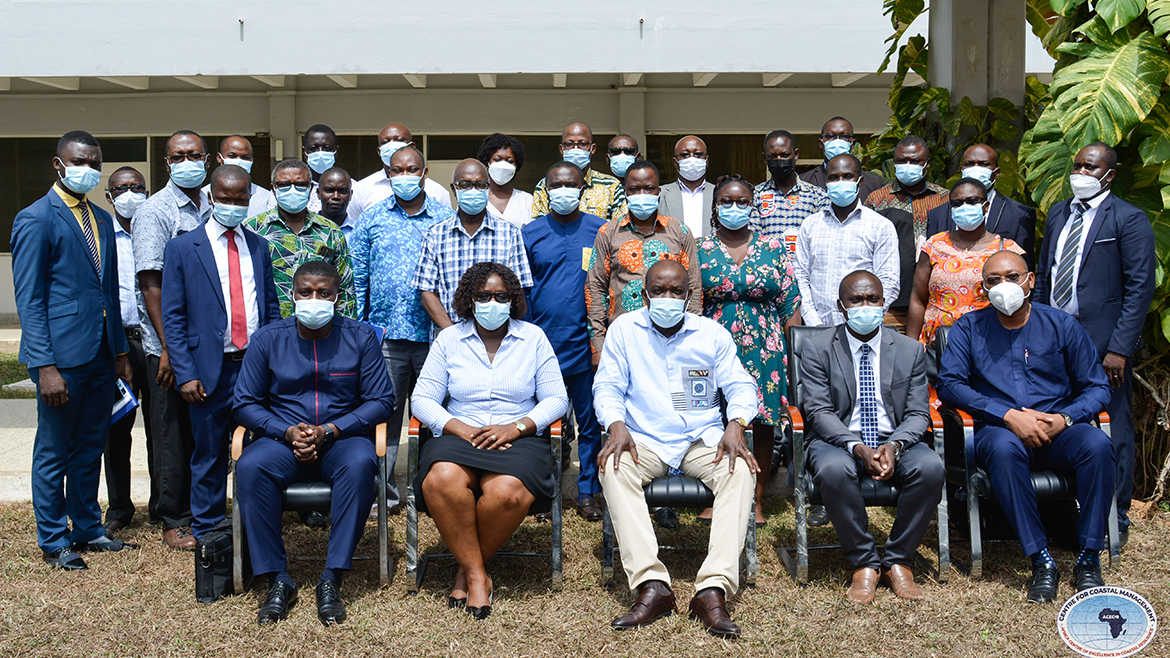
Posted On
Tuesday, April 13, 2021 - 21:24
Body
AAU And GTEC Pay Working Visit To ACECoR
The Association of African Universities (AAU) and the Ghana Tertiary Education Commission (GTEC) paid a working visit to the Africa Centre of Excellence in Coastal Resilience (ACECoR) at the University of Cape Coast (UCC). The two-day visit, which took place from 12-13 April 2021, was respectively organised by the regional and national oversight institutions of the Africa Centres of Excellence (ACE) for Impact programme in Ghana in order to learn more about the progress of implementation ACECoR at the University of Cape Coast.
The visiting team led by the Deputy Director-General of Ghana Tertiary Education Commission (GTEC), Dr. Ahmed Jinapor Abdulai included monitoring and evaluation officers, accounts officers, among others, drawn from both institutions. The visit to ACECoR was the first in the series of planned visits to all ACEs in Ghana. The team on arrival were welcomed by Prof. Moses Jojo Eghan, Provost of the College of Agriculture and Natural Sciences where ACECoR is housed and paid a courtesy call on the Vice-Chancellor of UCC, Prof. Johnson Nyarko Boampong, on the second day.
The highlight of the visit involved separate meetings with the Centre Director and staff of ACECoR and the students of ACECoR. In their opening remarks on the rationale for the visit, Dr. Ahmed Jinapor Abdulai, GCTE, and Prof. Denis Aheto, Director of ACECoR, both underscored the importance and timely nature of such joint visits by the two main oversight institutions of the ACEs in Ghana. They both gave indications that such visits needed to be sustained to deepen the bond between the ACEs and their oversight institutions whilst propelling the achievement of project goals.
The Centre Director took the opportunity to provide an update on the progress of implementation of the ACECoR programme. In his presentation, Prof. Aheto highlighted the progress on the disbursement-linked indicators (DLIs), elaborating on student enrolment into various postgraduate programmes at the Department of Fisheries and Aquatic Sciences. He mentioned that the Centre was at different stages of curriculum development for three other academic programmes including Blue Economy, Governance & Social Resilience, Disaster Risk Management & Migration and Coastal Engineering to be rolled out soon.
He further emphasised the gender equity and regionalisation efforts and success chalked by the Centre in the implementation of the ACECoR programme in terms of its post-doctoral fellows and professorial fellows program. According to Prof. Aheto, the achievement of a 47-53 percentage composition of female and male students ratio as well as attracting up to 32 percent regional students in the award of scholarships to postgraduate students is beyond the Centre's target. His presentation also covered issues of capacity building, industry-academia partnerships, international accreditation of academic programmes, publications (targets, numbers submitted, and verified), internships, external funds generated, teaching and learning infrastructure amongst others.
Whilst sharing the success stories of the Centre, Prof. Aheto revealed the key role the Centre and the Department of Fisheries and Aquatic Sciences are playing in the recent development concerning the unprecedented scale of dolphin strandings observed along the coast of Ghana. The Centre was working closely with the relevant state agencies including the International Whaling Commission (IWC), Environmental Protection Agency (EPA), and the Fisheries Commission (FC) of the Ministry of Fisheries and Aquaculture Development (MoFAD) to unravel the causes of the mass beaching of the dolphins, he announced.
To conclude the first day's event, the meeting discussed challenges and next steps in a question-and-answer session. During the Q&A, Mrs. Adeline Addy, Monitoring, Evaluation and Learning Officer, of the AAU shared some words of encouragement with the #ACECoR team. She explained that the monitoring activity currently being carried out by the joint GTEC and AAU mission is rather purposed to support the ACEs achieve their milestones, rather than to be perceived as a policing activity. She further implored the ACEs to regularly visit the AAU website to explore the many training opportunities available and take advantage of the AAU TV for advertisements.
The visiting team wrapped up their visit with a student’s forum on the second day where they engaged all MPhil and PhD students currently enrolled on ACECoR. The meeting yielded very fruitful discussions, with contributions for improving students welfare and planning for the future careers of the students, some of whom are already nearing completion.
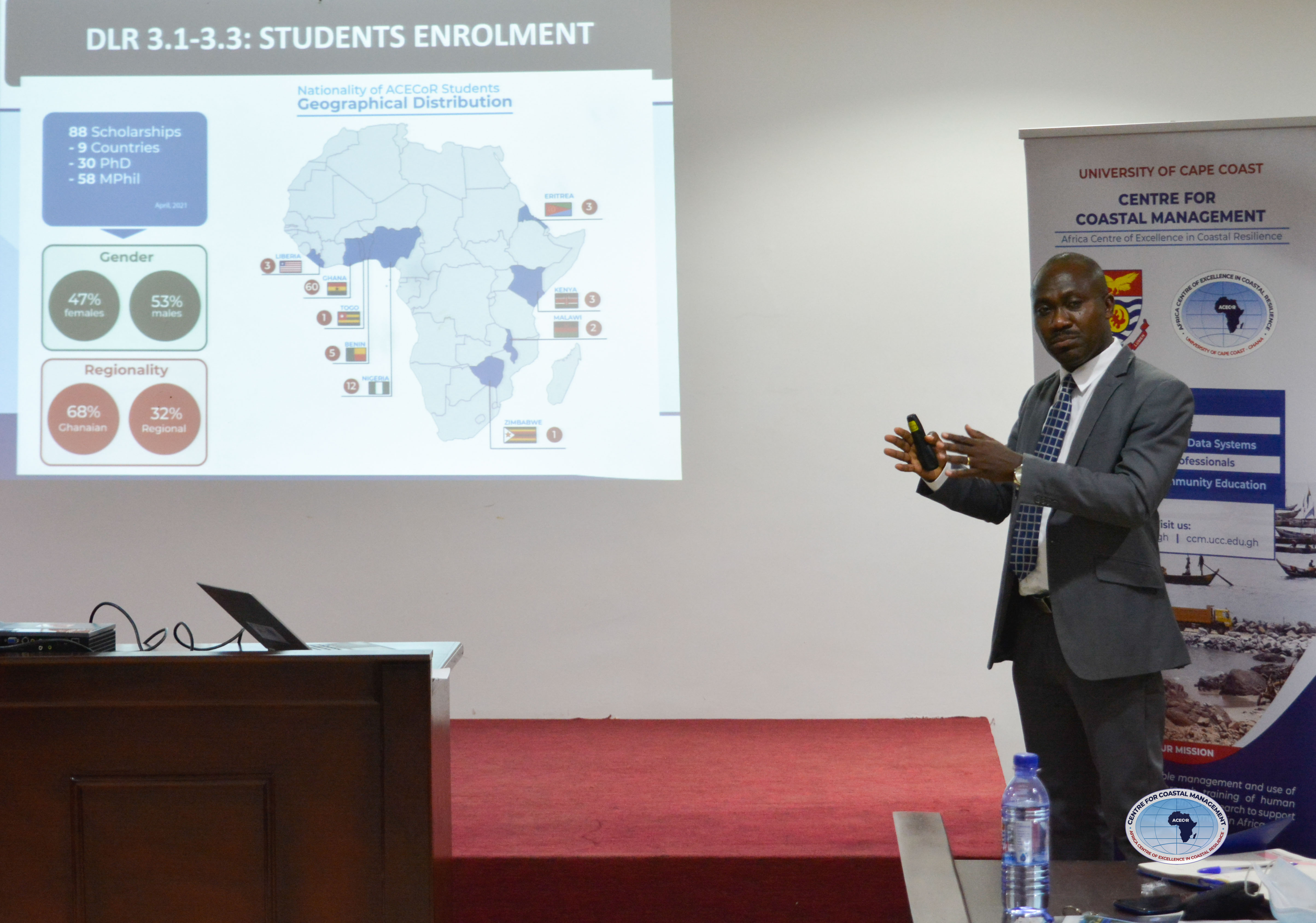
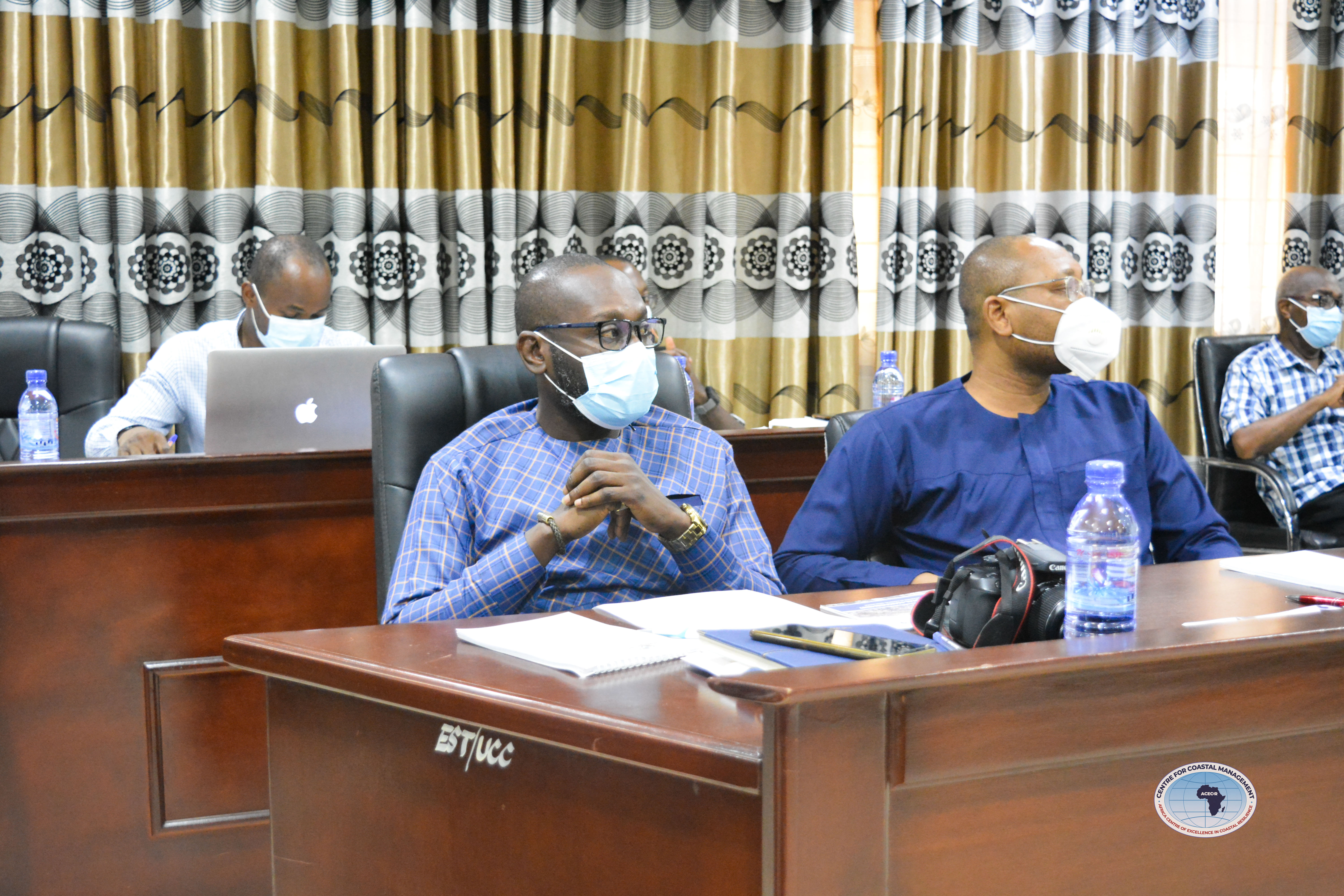
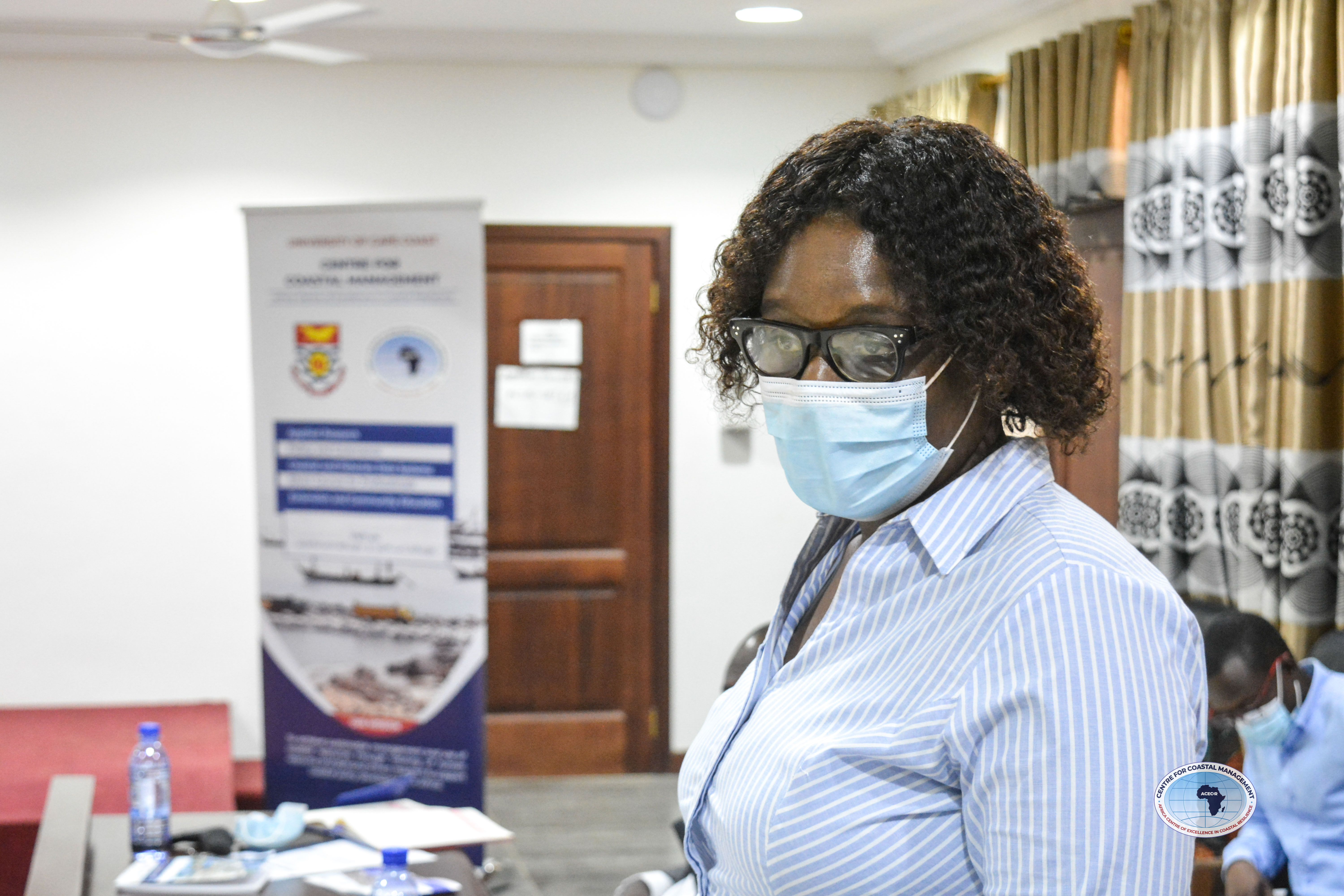
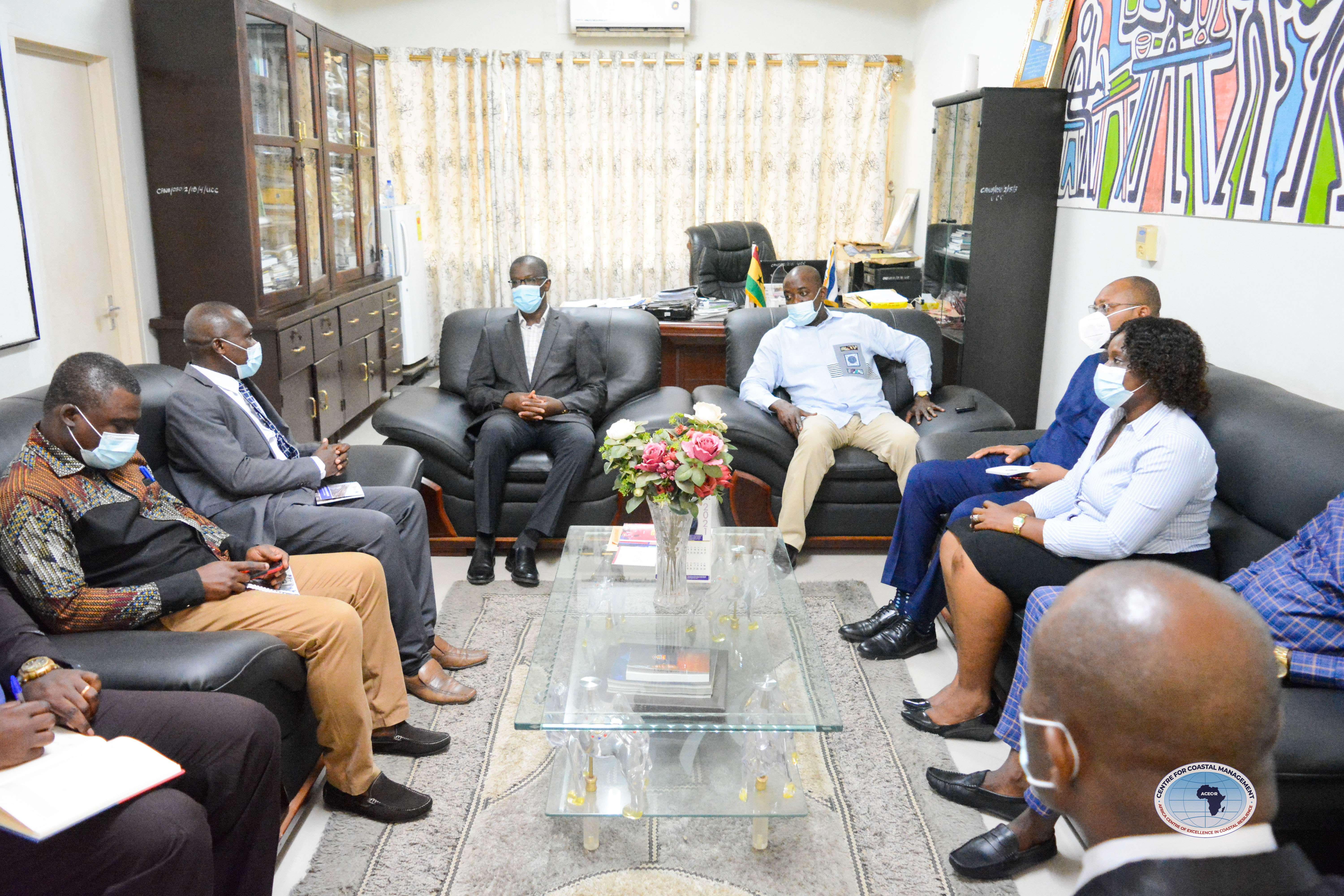
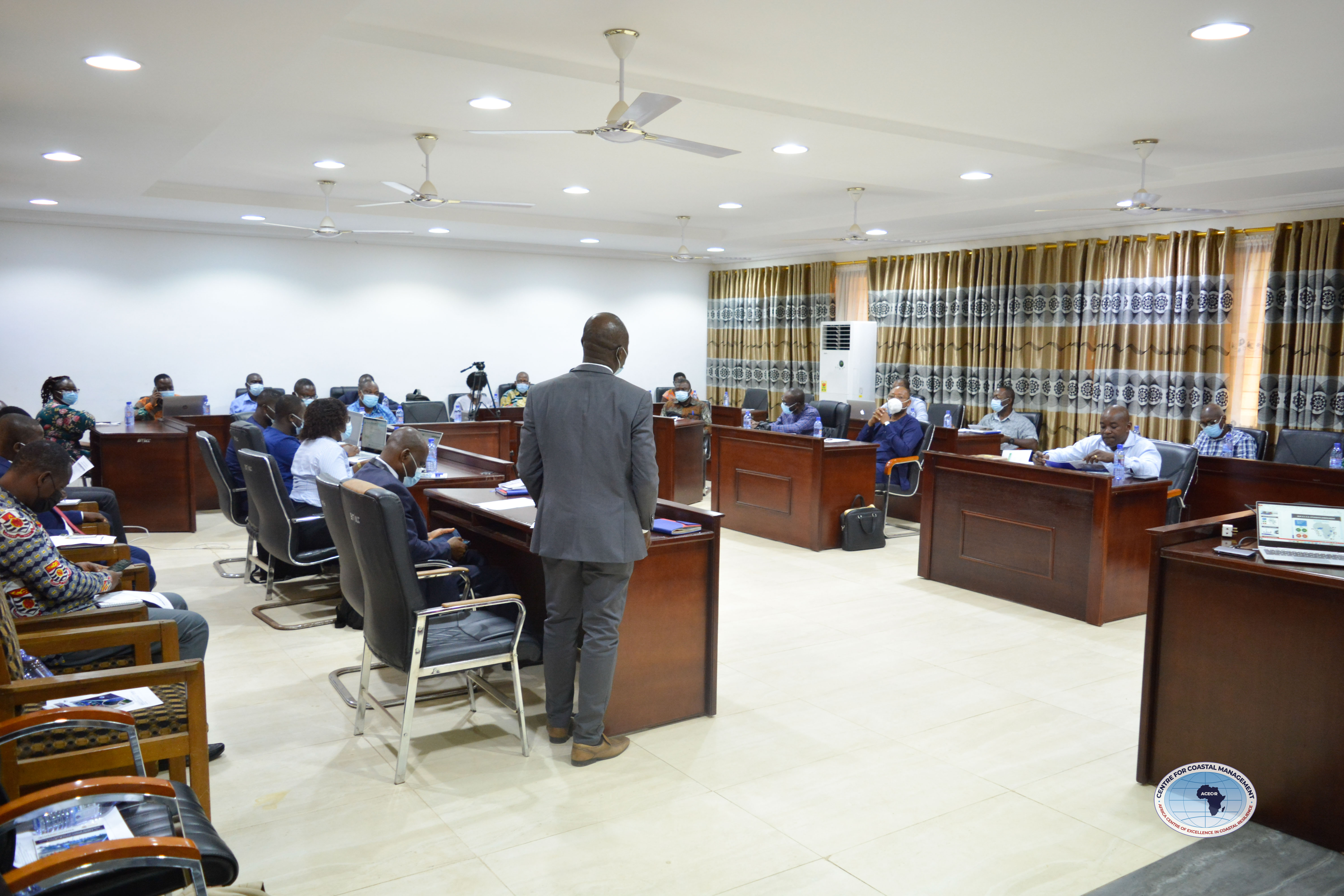
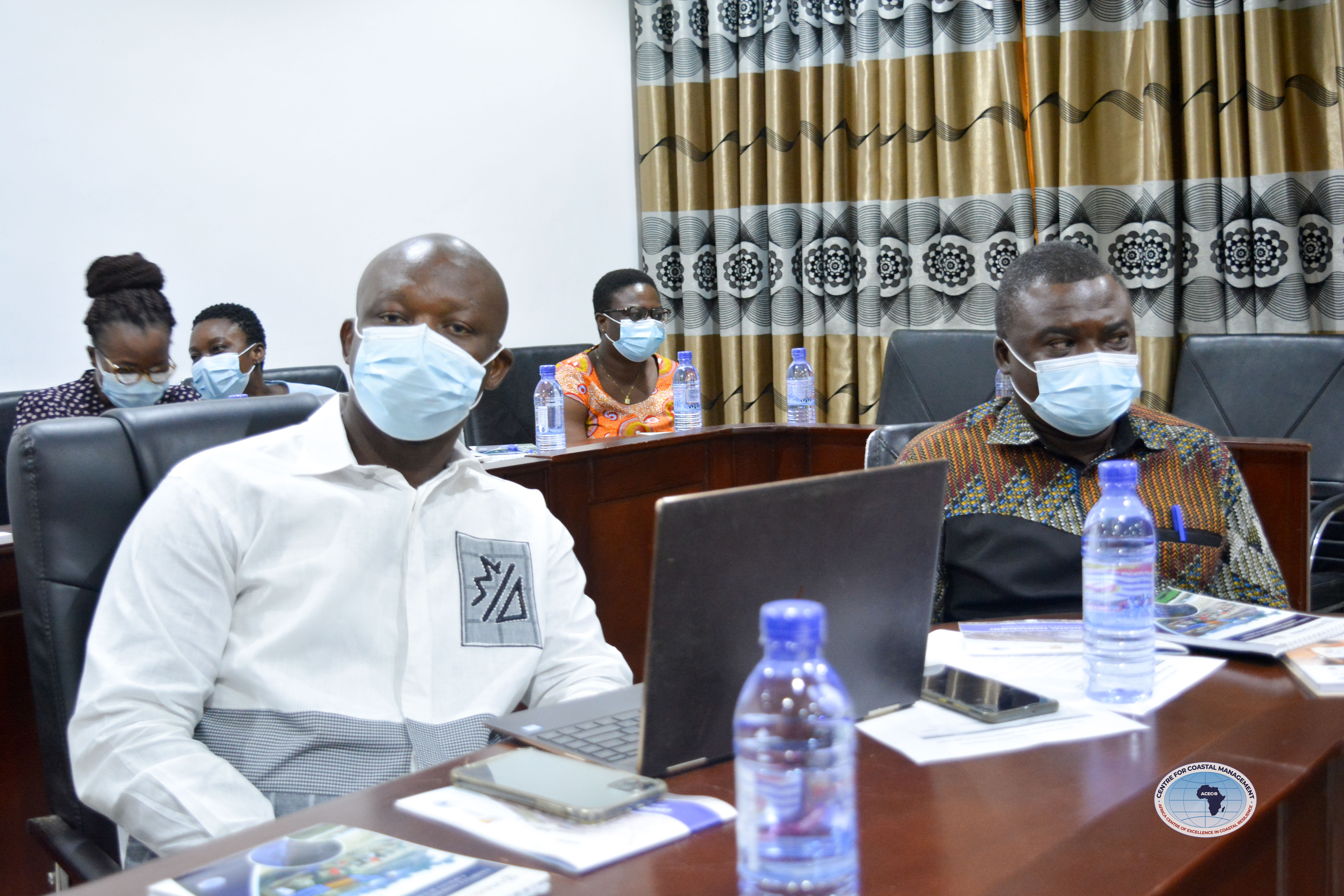
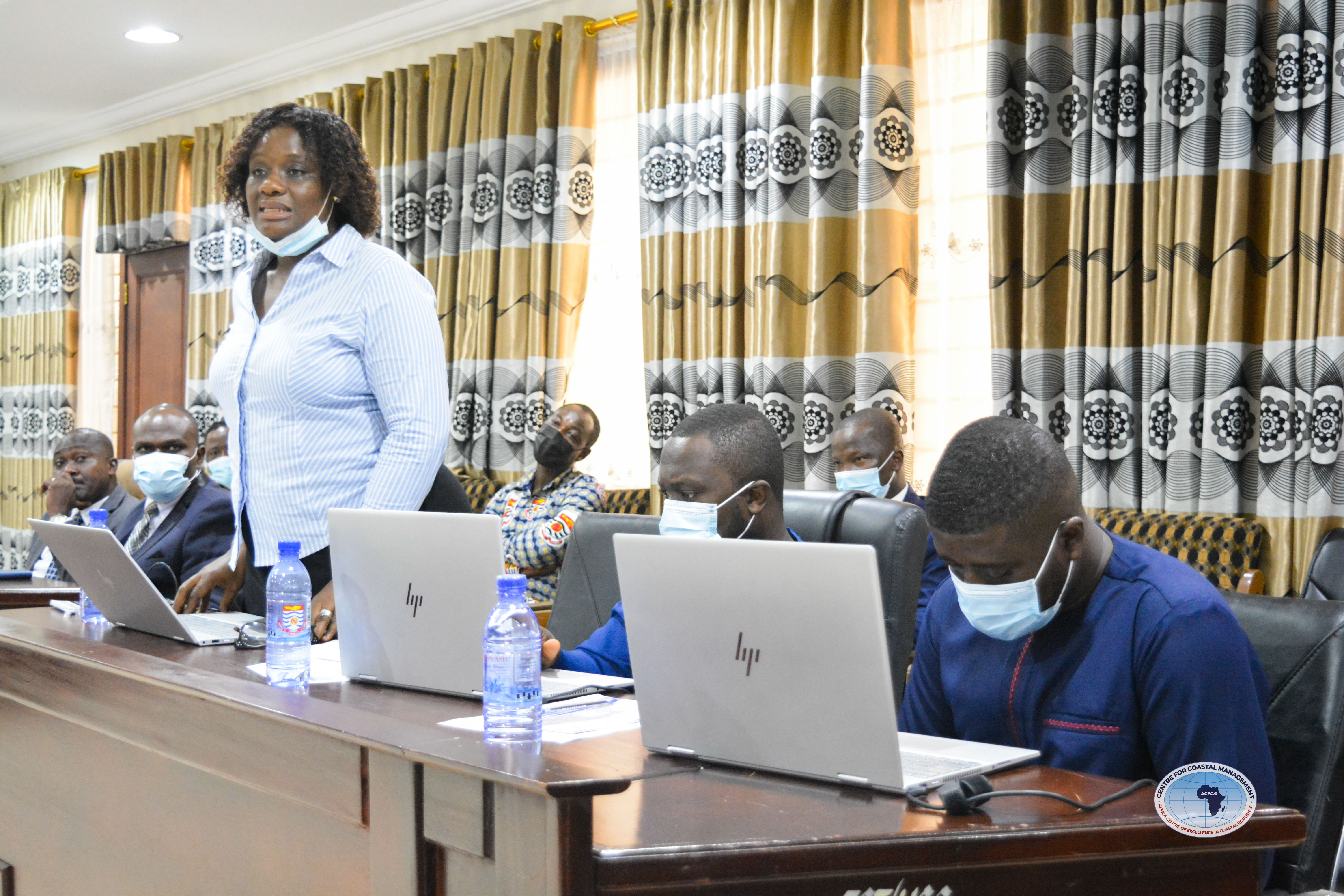
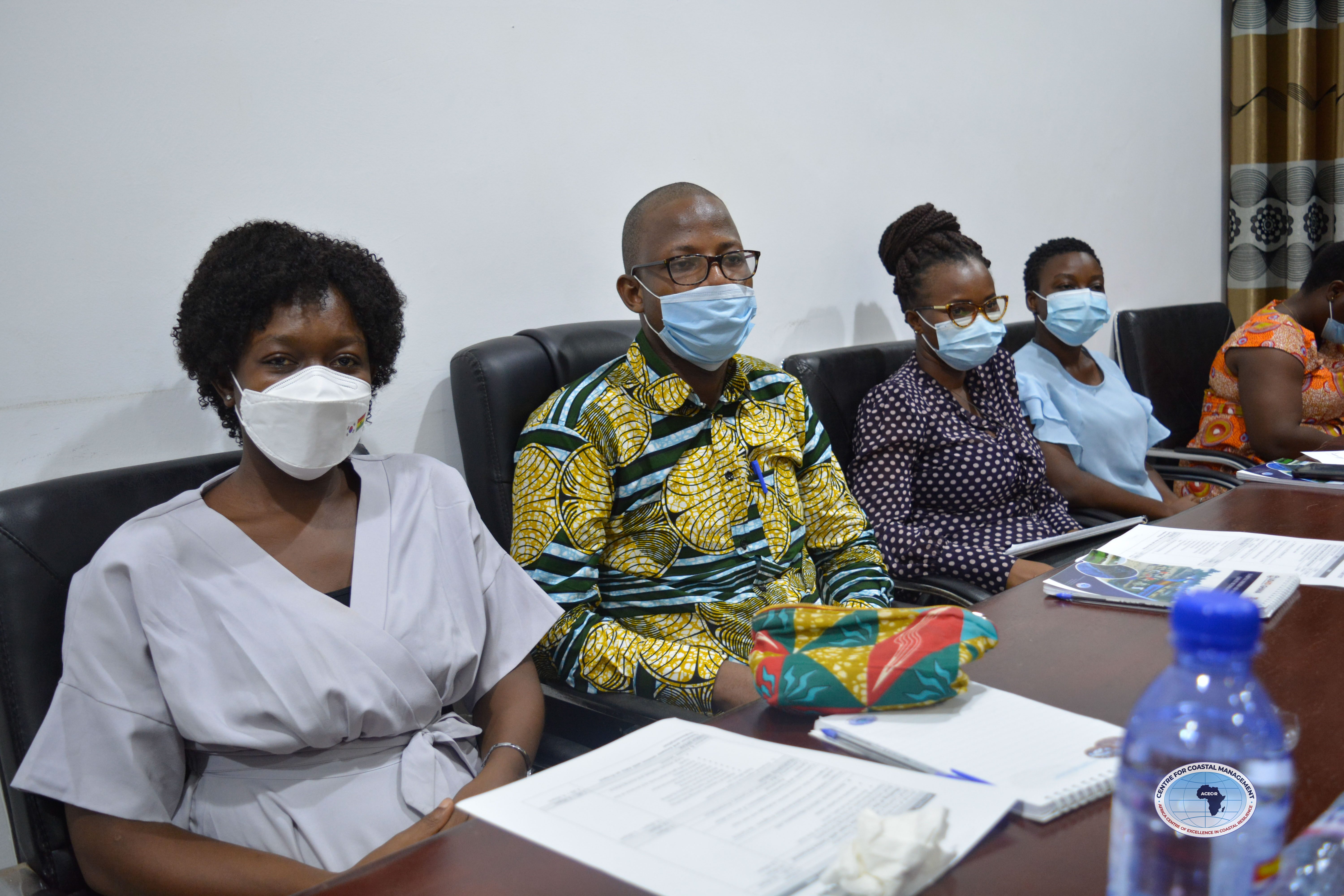
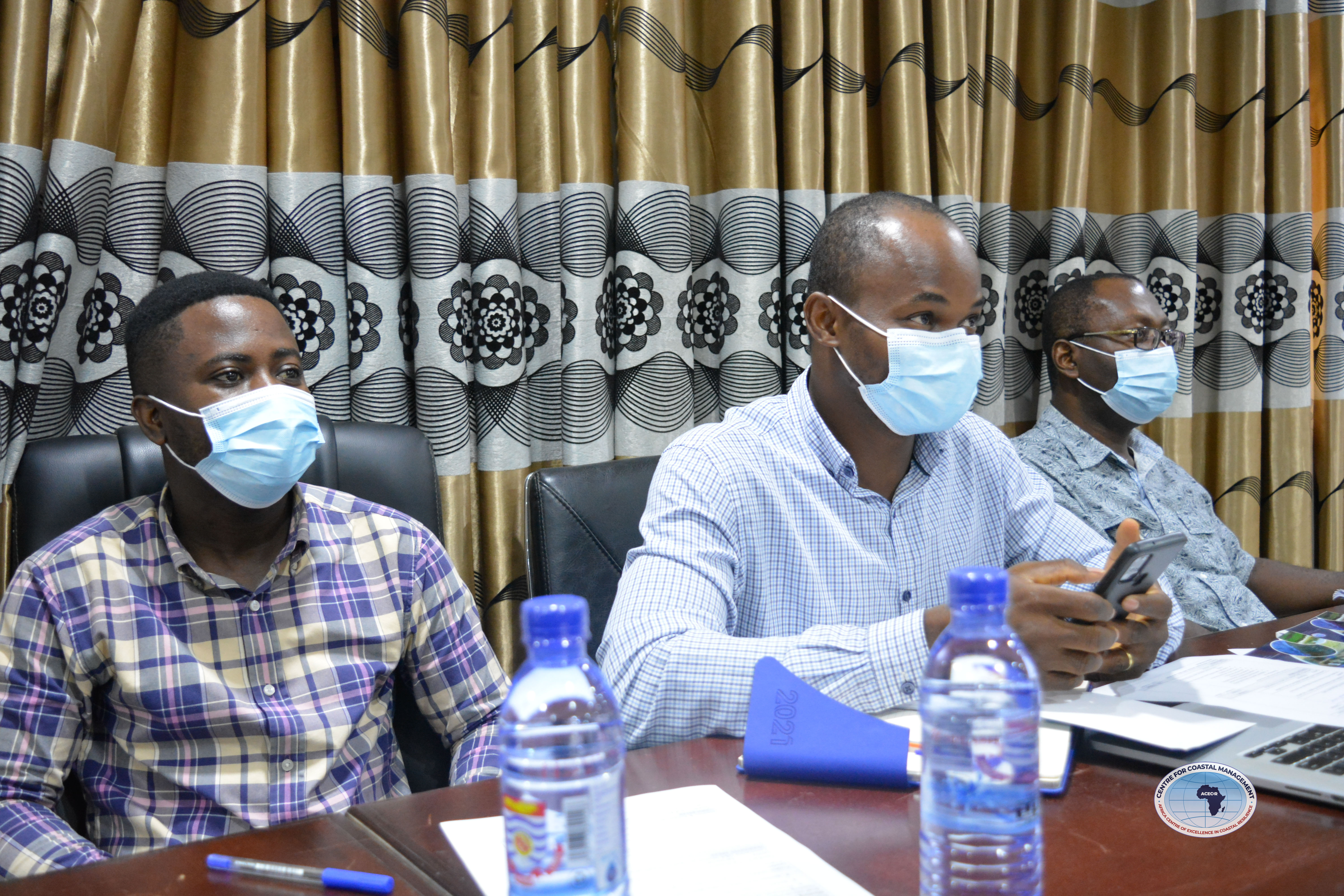
Last modified
